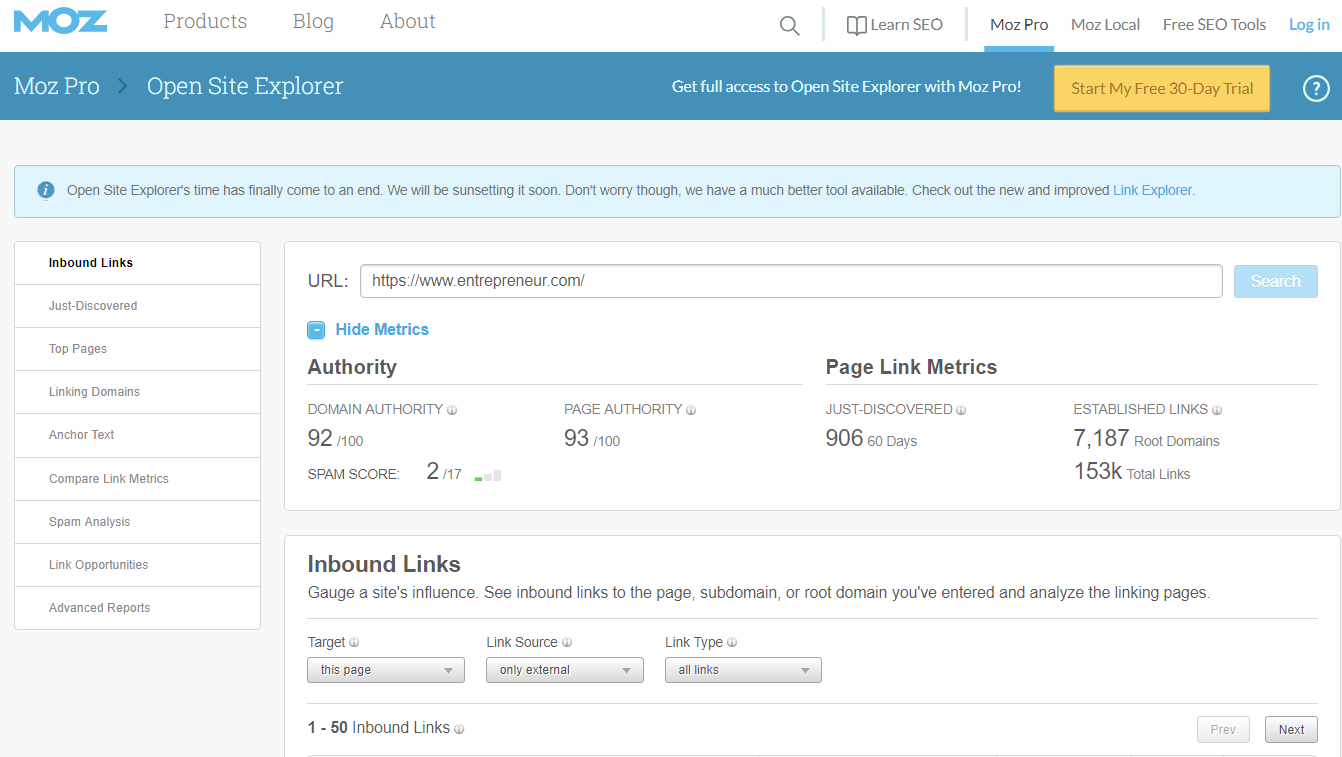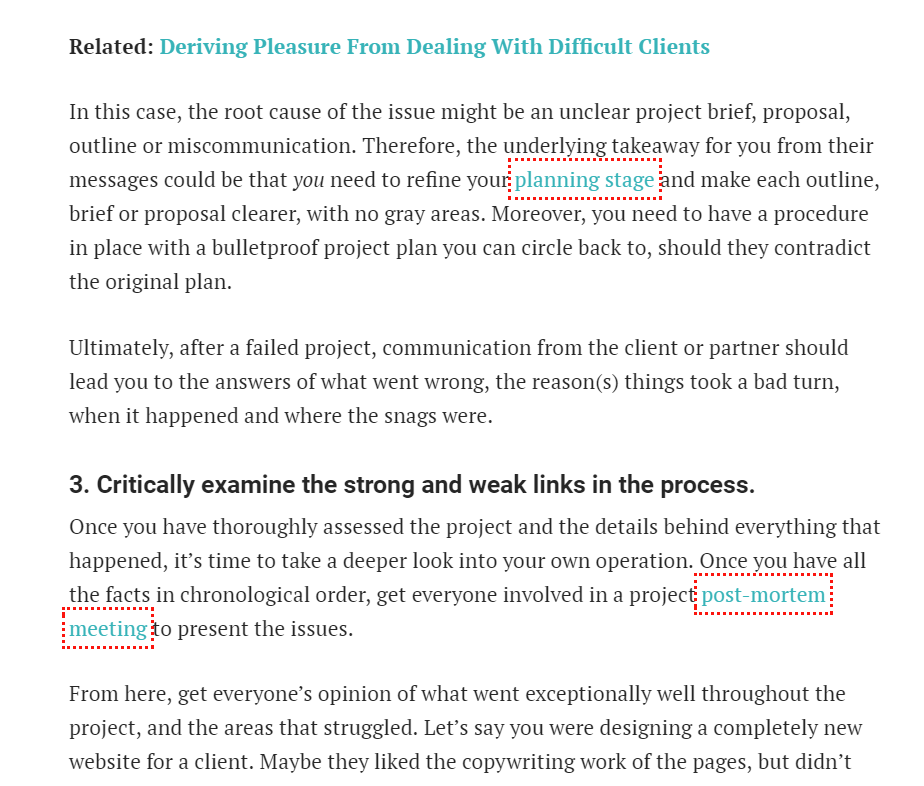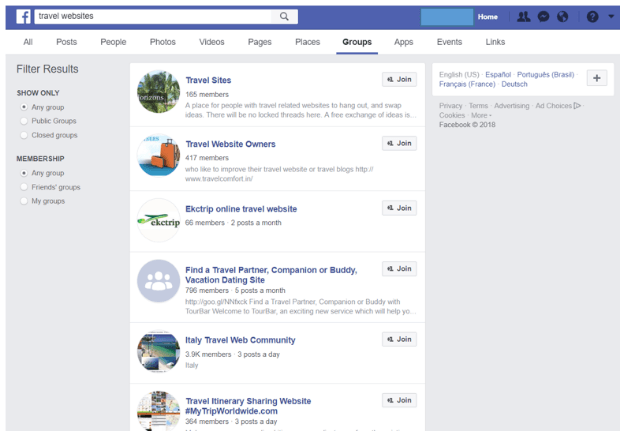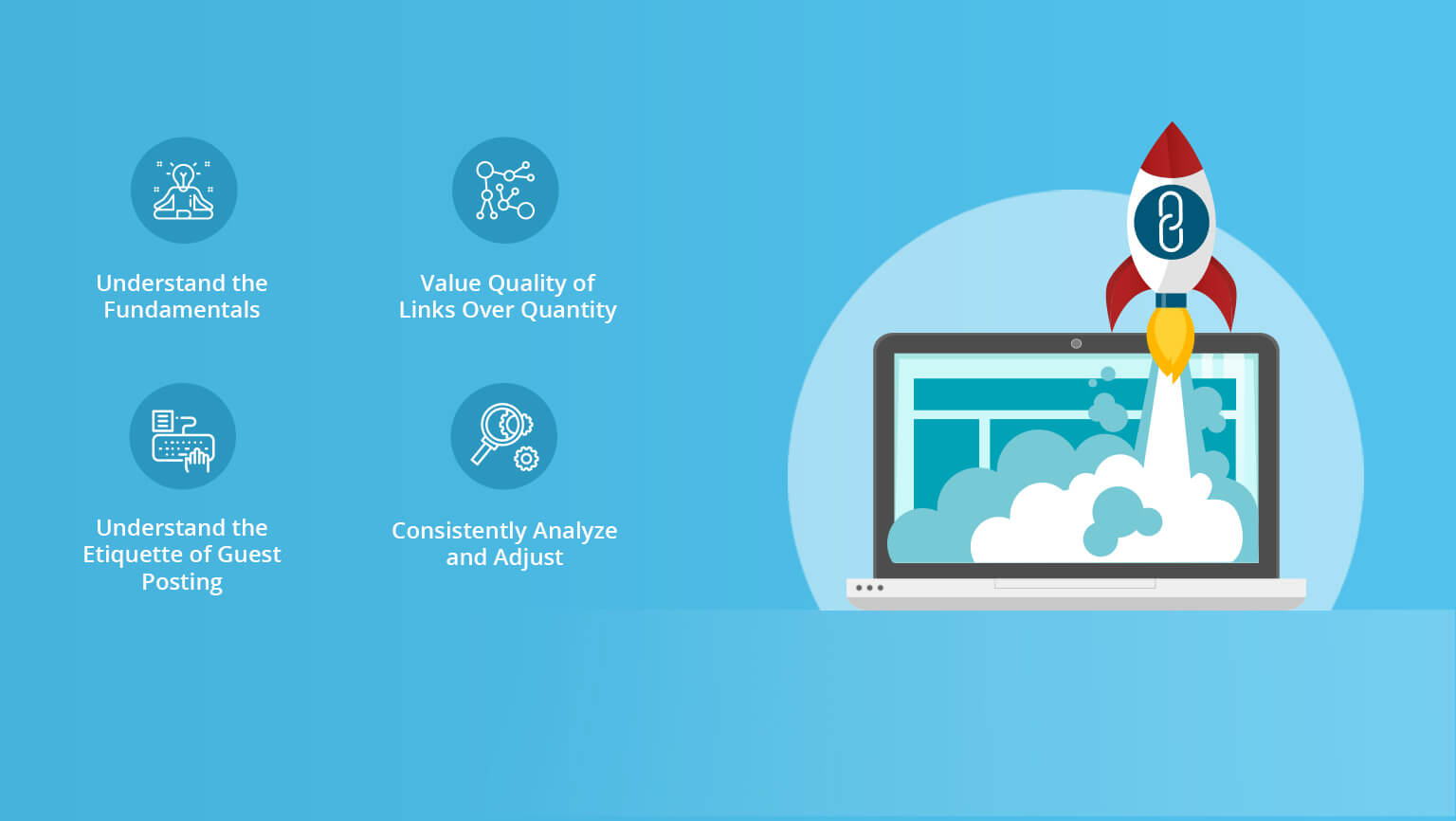The primary goal of the search engines is to put the best quality content in front of users. While there are many ways to gain credibility on the web, link building is one of the most effective. According to a MOZ survey, 53% of respondents claim they allocate a quarter of their SEO budget to link building.
Link building is defined as the extensive process of getting websites and pages to link to yours. The purpose is to help the search engines understand your website, gain referral traffic, and improve your site’s credibility.
Even though Google’s algorithms are famously mysterious and constantly-evolving, building backlinks has remained a key factor in how websites are ranked. It’s considered by many to be the third in the trinity of ranking factors, next to content and keywords.
Over time, the more links you get, the higher your authority will be on the web. Here are a few tips to get you started.
1. Understand the Fundamentals
The basic concepts of link building are pretty straightforward. To start, there are two types of link building that improve SEO: internal and external.
Internal linking deals with the link structure within your own website. For example, if you run a marketing agency that does content marketing and SEO, you can include links to the SEO page within the text of the content marketing page and vice versa. This helps the search engines understand what your site is all about and ranks it accordingly.
External linking is the major ingredient in a link building strategy. This involves other websites including a link within their content to your website. When other sites link to yours, this acts as a stamp of approval (of sorts) from that site to yours. The more credible that site is, the more credible the search engines will see you.
Now, when you are building links, there are a few factors that come into play and terms to familiarize yourself with:
a. Anchor text – This is one of the most important factors the search engines take into account. Anchor text refers to the actual phrase or keyword the page is linked to. For example, if you are building links for your computer repair website, ideal anchor text for your link would be something along the lines of ‘computer parts’ or ‘fix a computer.’
b. Link equity – Also known as link juice, is a ranking factor that determines how much credibility or value is passed from one link to another. This is dependent on factors like page authority, topic relevance, HTTP status, etc.
c. Website/page quality – Another major factor in link building is the credibility of the site you are linking to. If you use MOZ for research, this is known as Domain Authority and Page Authority. These are ranked 1-100. The higher the number, the more credible the site or page is in the eyes of the search engines.

d. NoFollow/DoFollow links – NoFollow links are modified with an HTML tag that makes it so they do not pass link equity to another page. DoFollow links, on the other hand, do not have this modification and transfer equity to the linked page. These are the ones you want for link building. If you use Google Chrome, the NoFollow extension is great for prospecting. If a link is NoFollowed, it will have a red dotted line around it.

When it comes to getting external sites to link back to yours, there are a number of key components to keep in mind.
a. Content creation and promotion – At the core, a good link building strategy is built on a foundation of high quality content. If you create and promote a piece that is compelling, easy to consume, and offers something unique, people will naturally want to link to it to improve their own content.
b. Links from partners – In many ways, link building is a game of networking. You need to learn how to properly approach site owners/influencers and convince them to link to you. A great deal of your success depends on this.
c. Mentions and Reviews – While links alone are great for improving your credibility with the search engines, you always want to display the messaging of your product or service in the best possible light to readers/viewers. The ideal situation is to have your entity actually mentioned and discussed on an external website with a link anchored to your site’s name. In addition to link building, this also helps with branding.
As you gain more and more link building experience, or work with agencies that help with this, these terms and concepts will make more sense.
2. Value Quality of Links Over Quantity
One of the biggest link building mistakes you can make is accepting any and all links. While this used to work in the old days, things have changed. Always remember, search engines value relevancy. For example, if you are a muffler shop, having a website that sells luxury dresses link to yours isn’t going to be a quality link. You want sites that offer information about automotive and repair. Super irrelevant links can actually cause more harm than good.
Don’t be tempted by any automated link building services, as most of these will lead to poor quality or toxic links. Be sure you are actively studying potential target sites for your link building strategy. When you are prospecting potential links, you can go beyond Google searches.
Social media is an incredibly valuable (and free) place to look. Chances are, regardless of your industry, there are relevant Facebook communities where you can connect with website owners. For instance, let’s say you are trying to build links for your website that offers camping advice and supplies. If you search for “travel websites” groups, you will find a number of resources for potential link building opportunities.

You can also look into blogging communities. If you have an industry site you like, check out the comment threads and guest author profiles – as some might have their own websites worth building links on.
Keep in mind, putting together a list of high quality sites will take some time, especially if you don’t have much link building experience. Once you have a list of potential sites, you need to check each backlink to gauge the credibility. While there are many free tools you can use for this, a specialized agency likely has access to more in-depth tools for finding the best links.
3. Understand the Etiquette of Guest Posting
Guest posting has been a staple tactic in link building for a long time. It involves reaching out to site editors and asking to produce a piece of content to be promoted on their website.
Now, if a website has a high authority and lots of traffic, the editors probably get tons of pitches for guest posts every day. That being said, your outreach emails need more than just a “Hey, can I write a guest post on your website?”
While most editors know that you are looking to build a link, they want to see that you actually read the content of the site and are committed to providing value to the readers. If you can, start by addressing the editor by name. Then, talk about why you are drawn to the content. Pick out a specific piece and explain what you like about it. Maybe it’s the actionable tips they provide or the easy-to-understand language they use. Editors are not stupid. If you haven’t done your research on their website, it will be painfully obvious.
From here, discuss how you can add value to the website with a guest post. Give them a unique topic idea with an outline. Lastly, explain what you want out of this guest post. In exchange for the fresh content, you would ideally ask for a link back to your website and maybe another one to a piece of your native content.
Guest posting revolves around your ability to find ideal target websites, reach out to editors, write the content, and maintain relationships. Moreover, you need to be 100% consistent with the content you produce and how you communicate with editors. If you do this on your own, it will likely take a long time to see results – as you probably can’t dedicate huge chunks of time to it. It’s also incredibly hard to do this effectively with freelancers. This is why working with a specialized agency is ideal for keeping your efforts unified and consistent while getting the work done fast.
4. Consistently Analyze and Adjust
The concept of SEO changes by the day. Moreover, the search engines love to keep the details of these changes quiet. In terms of link building, you need to keep up with analytics to do things like detect ranking drops, identify broken pages, gauge referral traffic, measure ROI, etc. Just like any other form of marketing analytics, you need to set your goals beforehand and base your success on how well your strategies are reaching them.
Now, it’s important to note that link building involves many different variables. Understanding how the datasets fit together and translate to success (or failure) isn’t typically black and white. Unless you know what you are looking for, this aspect of link building can be very difficult.
If you work with an agency, they have a complete view of how your campaign starts, how it progresses, and how to use the analytics to constantly refine the approach.
Conclusion
Link building is a fascinating tactic. It’s a game of knowing how to spot the best opportunities to add value for consumers, other websites, and of course, yourself. This is a process that automation simply cannot mimic effectively (at least not now).
If you want to gain traction quickly, you need a team or specialist that can devote lots of time. Furthermore, you typically get the best results when the specialist(s) has a top to bottom view of the entire plan – which includes prospecting, outreach, content creation, and analytics. If you work with freelancers on this, keeping everyone on the same page is a task in and of itself. When this is the case, campaigns can easily get derailed. Do yourself a favor and work with an agency, the investment is well worth it!
Jack Shepler is a Marketing and Search Engine Optimization expert. He founded Ayokay, award-winning marketing, and web design firm in Indianapolis, Indiana that has built brands, increased sales for businesses, and helped nonprofit organizations fulfill their missions since 2011. He uses his decades of experience to educate through the Ayokay blog and through public speaking. You can follow him on LinkedIn.







